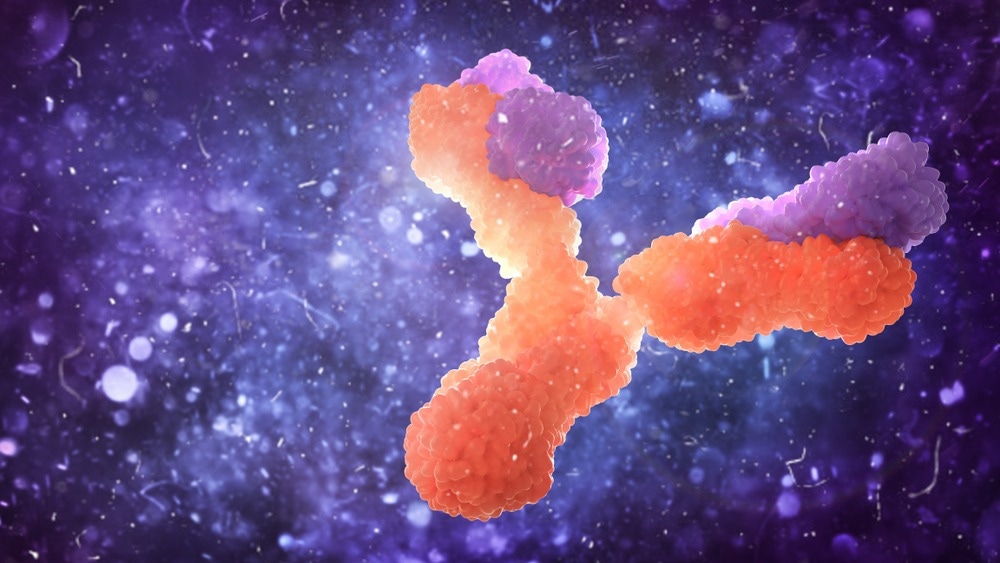In a recent study posted to bioRxiv*, researchers identified monoclonal antibodies (mAbs) that neutralize severe acute respiratory syndrome coronavirus 2 (SARS-CoV-2) variants.
 Study: Novel monoclonal antibodies showing broad neutralizing activity for SARS-CoV-2 variants including Omicrons BA.5 and BA.2.75. Image Credit: vipman/Shutterstock
Study: Novel monoclonal antibodies showing broad neutralizing activity for SARS-CoV-2 variants including Omicrons BA.5 and BA.2.75. Image Credit: vipman/Shutterstock

 *Important notice: bioRxiv publishes preliminary scientific reports that are not peer-reviewed and, therefore, should not be regarded as conclusive, guide clinical practice/health-related behavior, or treated as established information.
*Important notice: bioRxiv publishes preliminary scientific reports that are not peer-reviewed and, therefore, should not be regarded as conclusive, guide clinical practice/health-related behavior, or treated as established information.
Background
SARS-CoV-2 Omicron has caused a widespread increase in coronavirus disease 2019 (COVID-19) cases. Several studies have reported that three mRNA vaccine doses confer protective immunity against SARS-CoV-2 Omicron BA.1 and BA.2 sub-variants.
The study and findings
The current study identified three mAbs, broadly effective against multiple SARS-CoV-2 variants. Previously, the authors identified sera from patients infected with SARS-CoV-2 between July and November 2020, who later received a double-dose mRNA vaccine, that exhibited excellent neutralizing activity against SARS-CoV-2. First, they explored antibody genes from the peripheral blood mononuclear cells (PBMCs) collected from these patients.
Ten antibody genes were identified from B cells isolated from PBMCs. Ten mAbs were tested for neutralizing activity; three (MO1, MO2, and MO3) were selected. MO1 antibody recognized spike proteins from D614G, Delta, and Omicron BA.1, BA.2, and BA.5 variants. MO2 recognized spikes from D614G, Delta, BA.1, and BA.2 variants, whereas MO3 recognized D614G and Omicron BA.1 and BA.2 variants.
Next, the researchers found that MO1 neutralized the five SARS-CoV-2 variants along with BA.1.1 variant. MO2 neutralized four SARS-CoV-2 variants (D614G, Delta, BA.1, and BA.5). Likewise, MO3 exhibited neutralizing activity against three SARS-CoV-2 variants (D614G, BA.1, and BA.2). Additionally, the three mAbs were able to neutralize the SARS-CoV-2 BA.2.75 variant.
Further, the authors evaluated the affinity of the antibodies to Omicron spike proteins using bio-layer interferometry (BLI). The mAbs MO1 and MO2 had a substantial affinity for binding to the receptor-binding domain (RBD) of the BA.2 spike trimer. MO1 antibody exhibited high affinity for the RBD of BA.5 spike, while MO2 did not bind to it.
Conclusions
The MO1 antibody effectively neutralized major SARS-CoV-2 variants, including Omicron BA.2.75 and BA.5. The BA.1 and BA.2 variants evade several known nAbs, and the immune evasion of BA.5 is strengthened by additional substitutions such as F486V and L452R. Although MO2 neutralized BA.1 and BA.2, it failed to neutralize BA.5.
MO1 retained neutralizing activity against BA.5, perhaps due to a conserved epitope outside the specified mutant sites of the BA.5 spike. The team reported that a structural analysis was underway for MO1. However, preliminary findings from the cryo-electron microscopy suggest that MO1 accesses spike RBD similarly to the therapeutic mAbs cilgavimab and bebtelovimab, despite binding to a different site.
That MO1 neutralizes early and more recent SARS-CoV-2 variants suggests that immunity against ancestral SARS-CoV-2 RBD could protect individuals from the Omicron variants by inducing nAbs targeting conserved epitopes. The authors posit that multiple exposures to the spike protein could elicit broad-acting nAbs, regardless of variation in the spike sequence. They speculate that a triple- or quadruple-dosed vaccine based on wildtype SARS-CoV-2 could stimulate memory B cells to elicit antibodies with broad-spectrum activity.

 *Important notice: bioRxiv publishes preliminary scientific reports that are not peer-reviewed and, therefore, should not be regarded as conclusive, guide clinical practice/health-related behavior, or treated as established information.
*Important notice: bioRxiv publishes preliminary scientific reports that are not peer-reviewed and, therefore, should not be regarded as conclusive, guide clinical practice/health-related behavior, or treated as established information.